17/07/2019
- The deployment of 5G and its application in areas such as energy sustainability or education; and the need to face the challenges posed by the development of Artificial Intelligence (AI), to be discussed today at the DigitalES Summit.
Madrid, July 17, 2019 – The Minister of Industry, Trade and Tourism, Reyes Maroto, inaugurated this morning the second day of the DigitalES Summit 2019, organized by the Spanish Association for digitization, and employer of the sector, DigitalES.
“Technological and digital transformation is one of the fundamental levers for improving growth, competitiveness and social welfare. And the government has positioned digitalization as a driver for sustained, inclusive and sustainable growth,” said the minister.
According to Maroto “in this path towards the 4.0 economy, data is the greatest asset of our organizations. The combination of data with technologies that facilitate connectivity such as 5G, IOT, Artificial Intelligence or 3D printing will determine the success or failure of any business project”.
The government considers digitalization as one of the four pillars of the political program of the new legislature. In this regard, the minister stressed the need to define a common project within the European Union so that Europe can lead this transformation in the face of Asia and America, which are currently ahead. In this context, Reyes Maroto stressed the importance of Artificial Intelligence (AI), where a common strategy is already being outlined within the European Strategy 2019-2024.
The Government, in turn, has presented the Spanish Strategy for AI in order to gauge its impact on the social and economic fabric, include it in the labor market and encourage the attraction of talent.
AI will generate $13 trillion in global GDP growth by 2030, according to a Mackenzie report. This boom, in the minister’s view, presents an opportunity for all companies to operate smarter and improve their profitability.
“Spain and Europe have the opportunity to be leaders in AI by placing it on the agenda as a priority,” said the minister. “It is an opportunity to improve the productivity of economic sectors. Digitalization is transforming business models, processes and products. From the administrations we must create the conditions to accompany traditional companies in this digitization and, at the same time, to facilitate the creation of companies in the digital environment”.
Maroto has outlined some of the initiatives launched by the ministry to help the digital transition, such as the 4.0 connected industry plan for SMEs, as well as a program of personalized advice, awareness and financial support and a catalog of regional and national initiatives.
The digitalization of trade is another of the government’s priorities, since, in the words of the minister, “the digitalization of retail trade is below the European average”. In this regard, the government has created the Trade Observatory to identify new practices and promote policies to adapt local commerce to digitalization.
As for tourism, “the ministry has placed digitalization at the center of the transformation of the tourism model to promote innovation, sustainability, governance and, ultimately, to ensure the future of the country-model.” Thus, the government is promoting a network of intelligent tourist destinations so that destinations are configured as innovative tourist areas that guarantee the sustainable development of their territory, facilitating the integration of the visitor with the environment and improving the quality of life of the residents.
DigitalES SUMMIT 2019
The DigitalES Summit 2019 continues tomorrow hpy with three topics of scope for the digital future of Spain: the world of tomorrow as seen from technological solutions, mobility in the digital age, and the future of employment and education. The conference will be attended by the Minister of Education Isabel Celaá.
The meeting will be closed in conversation with the presidents of the Government Jose Maria Aznar and Felipe Gonzalez, to discuss the role of state policies in promoting digitization and technology as an element of geopolitical leadership. Whereas in the past, nations became powers thanks to military and economic factors, today the technological factor plays a fundamental role. Technology places demands on investment capabilities and the labor force, while offering opportunities for competitiveness and for citizens. Presidents of government between 1982 and 2004 discuss how the public sector can enable technological innovation to flourish for the benefit of countries and their citizens. Thanks to their experience, they will offer their views on how technology will continue to transform society.
See more details in the event program.









